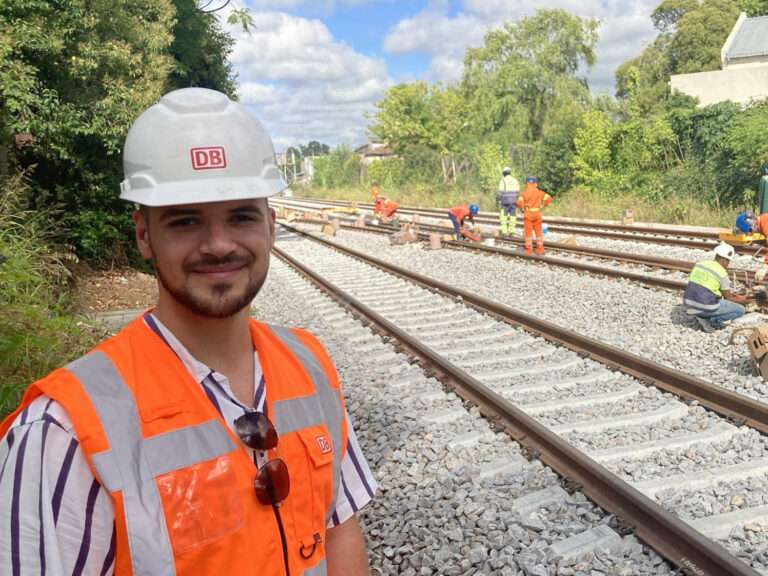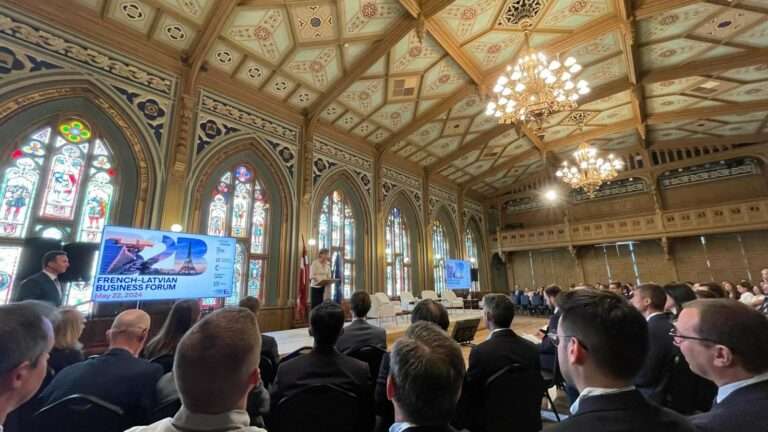Study on high-speed railway systems and rolling stock for India´s NHSRCL
Im Sommer 2020, mitten in der Corona-Pandemie, wurde die DB Engineering & Consulting von der indischen National High-Speed Rail Corporation (NHSRCL) mit der Durchführung einer umfassenden Studie zu verschiedenen Hochgeschwindigkeitsbahnsystemen und -fahr-zeugen beauftragt.

Die NHSRCL, ein Joint Venture zwischen der indischen Zentralregierung und den Regierungen der Bundesstaaten Gujarat und Maharashtra, ist zuständig für die Finanzierung, die Planung, den Bau, die Instandhaltung und die Steuerung künftiger Hochgeschwindigkeitskorridore in Indien.
Die erste Hochgeschwindigkeitsstrecke Indiens, die von Mumbai nach Ahmedabad führen wird und derzeit im Bau ist, soll die japanische Shinkansen-Technologie nutzen. Vor diesem Hintergrund bestand die Aufgabe der DB Engineering & Consulting darin, eine umfassende Studie zu Fahrzeugen, Abstellanlagen, Instandhaltungswerken und deren Ausrüstung, zu Untersuchungs- und Wartungsfahrzeugen und -anlagen, Signalgebungs- und Zugsteuerungssystemen, Kommunikationssystemen, Systemen für Betriebsleitzentralen, automatische Fahrpreiserhebung und Ticketing sowie zu Bahnsteigtürsystemen für den Hochgeschwindigkeitsverkehr durchzuführen. Außerdem wurde im Rahmen der Studie der Aufwand für die Anpassung der einzelnen Lösungen an die klimatischen Verhältnisse in Indien, die breiteren Lichtraumprofile, die Zuglänge, die Tunnelanforderungen usw. beschrieben und beziffert.
Weitere Aufgaben waren die Entwicklung von Lösungen für verschiedene Varianten von Instandhaltungswerken und Abstellanlagen sowie für Fahrplansimulationen für Zweigeschwindigkeitsvarianten und die Erstellung von Systemeinführungsplänen. So wurden der NHSRCL in einem weltweiten Vergleich aller größeren Hochgeschwindigkeitssysteme umfassende Informationen zu den unterschiedlichen technologischen Ansätzen und Preisniveaus zur Verfügung gestellt.
Ein Consulting-Projekt unter besonderen Bedingungen
Nach einer 2018 durchgeführten Machbarkeitsstudie ist diese Studie der zweite große Beratungsauftrag für den Schienenfernverkehr, den die DB Engineering & Consulting in Indien erfolgreich abgeschlossen hat. Bis dahin hatte der Schwerpunkt der Aktivitäten zumeist speziell bei Metrosystemen gelegen. Aber dass der Fokus diesmal auf dem Hochgeschwindigkeitsverkehr lag, war nicht das Einzige, was dieses Projekt so besonders machte: Pandemiebedingt konnten die bewährten Projektschritte wie Kick-off-Veranstaltung, Besichtigungen und Kundenbesprechungen nicht vor Ort stattfinden. Fast alle Expert:innen arbeiteten von zu Hause aus, und der Projektleiter war zu Projektbeginn sogar in Quarantäne. Kleingruppen in Berlin, Frankfurt, Bangalore und Beijing und Einzelpersonen in Melbourne, Singapur, Wien und Dresden bildeten zusammen über sechs Länder und drei Kontinente hinweg ein internationales Team. Auch das Kennenlernen des Kunden und der Vertreter der indischen Niederlassung der DB Engineering & Consulting fand in einem rein virtuellen Umfeld statt. Aber mithilfe digitaler Kommunikationsmittel und dank des enormen Engagements aller Projektbeteiligten arbeitete das virtuelle Team effizient zusammen und führte das Projekt zum Erfolg.
Eine weitere Besonderheit des Projekts war die Zusammenarbeit des Teams mit der ESE Engineering- und Software-Entwicklung, einem Unternehmen der DB E.C.O. Group mit Sitz in Braunschweig, das wesentlich dazu beitrug, bei den Anforderungen an Cybersicherheit und IT-Sicherheit für den Hochgeschwindigkeitsverkehr auf der Schiene den aktuellen Stand der Technik einfließen zu lassen. So ergänzte das Expertenwissen der ESE das der DB Engineering & Consulting, insbesondere in den Bereichen Leit- und Sicherungstechnik, Ticketing und Fahrgeldmanagement.
Nächste Schritte: Aufbau einer Wissensdatenbank für die NHSRCL
Insgesamt wurden im Rahmen des Projekts fast 5.000 Seiten digitaler Texte, Tabellen und Zeichnungen erstellt. Ausgedruckt füllte die Dokumentation 12 Bände mit jeweils 500 Seiten. Die von der DB Engineering & Consulting erstellten Studienberichte sollen die Wissensbasis der NHSRCL erweitern und die NHSRCL in ihren Bestrebungen unterstützen, in Indien ein Hochgeschwindigkeitsbahnsystem von Weltrang aufzubauen.





